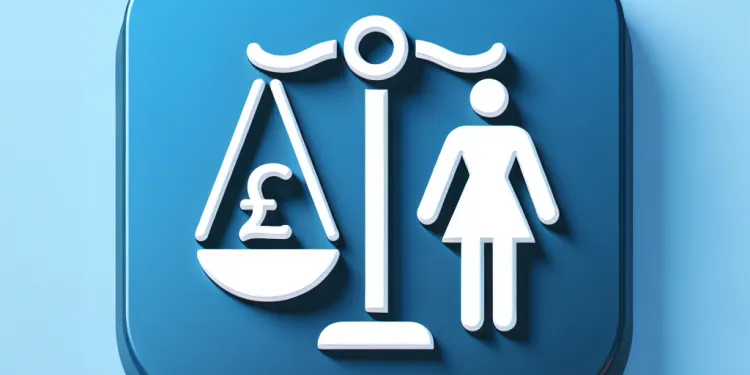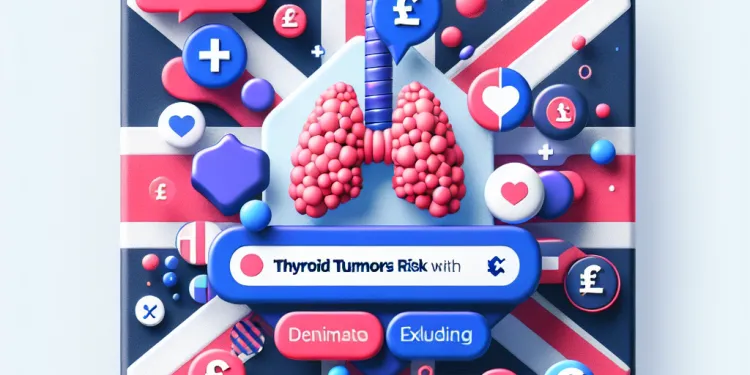
Find Help
More Items From Ergsy search
-

What is Ozempic?
Relevance: 100%
-

What is Ozempic?
Relevance: 97%
-

Is Ozempic safe for everyone to use?
Relevance: 97%
-

How should Ozempic be stored?
Relevance: 96%
-

Is Ozempic a form of insulin?
Relevance: 96%
-

How is Ozempic administered?
Relevance: 96%
-

Who should not take Ozempic?
Relevance: 96%
-

Do I need a prescription for Ozempic?
Relevance: 93%
-

Is Ozempic suitable for type 1 diabetes?
Relevance: 92%
-

How is Ozempic administered?
Relevance: 92%
-

How does Ozempic help with weight loss?
Relevance: 91%
-

Can Ozempic cause serious side effects?
Relevance: 91%
-

Can Ozempic be used in conjunction with other weight-loss medications?
Relevance: 90%
-

Can Ozempic be taken with food?
Relevance: 90%
-

Does Ozempic cause allergic reactions?
Relevance: 90%
-

Can non-diabetic individuals use Ozempic for weight loss?
Relevance: 90%
-

How does Ozempic work?
Relevance: 90%
-

Does insurance cover Ozempic?
Relevance: 89%
-

What problems is Ozempic known to cause?
Relevance: 89%
-
What happens if I overdose on Ozempic?
Relevance: 89%
-

Can Ozempic affect vision?
Relevance: 89%
-

Is there a risk of thyroid tumors with Ozempic?
Relevance: 88%
-

Are there warnings about using Ozempic with other medications?
Relevance: 88%
-

What are the side effects of Ozempic?
Relevance: 88%
-

Can Ozempic lead to dehydration?
Relevance: 88%
-

Are there any long-term effects of using Ozempic?
Relevance: 87%
-

What are the common side effects of Ozempic?
Relevance: 87%
-

Can Ozempic be used for weight loss?
Relevance: 87%
-

Has Ozempic been approved for weight loss?
Relevance: 86%
-

How often do you take Ozempic?
Relevance: 86%
-

Are there any serious risks associated with Ozempic?
Relevance: 86%
-

Will insurance cover Ozempic for weight loss?
Relevance: 86%
-

What are common side effects of Ozempic?
Relevance: 86%
-

What should I discuss with my doctor before starting Ozempic?
Relevance: 85%
-

What happens if I stop taking Ozempic or Wegovy?
Relevance: 84%
-

Can Ozempic cause gallbladder problems?
Relevance: 84%
-

Is nausea a frequent side effect of Ozempic?
Relevance: 84%
-

What should I do if I miss a dose of Ozempic?
Relevance: 83%
-

Are there any clinical trials supporting Ozempic for weight loss?
Relevance: 83%
-

Can I take Ozempic with other diabetes medications?
Relevance: 83%
Understanding Ozempic
Ozempic is a medication primarily used to treat type 2 diabetes. It is an injectable prescription drug that contains the active ingredient semaglutide. Ozempic works by mimicking the hormone GLP-1 (glucagon-like peptide-1) which regulates blood sugar and insulin levels. By enhancing the body's insulin response after meals, it helps maintain blood sugar levels within the target range. Additionally, it can contribute to weight loss, which is beneficial for many individuals with type 2 diabetes.
Is Ozempic Safe for Everyone?
While Ozempic is effective for many people with type 2 diabetes, it is not suitable for everyone. Patients should undergo thorough evaluation by healthcare professionals before commencing treatment. There are specific groups of people for whom Ozempic might pose risks.
Firstly, individuals with a history of medullary thyroid carcinoma (MTC) or those with a family history of this type of cancer should avoid using Ozempic. The drug comes with a warning regarding the possibility of thyroid tumors. Similarly, those with Multiple Endocrine Neoplasia syndrome type 2 (MEN 2) are advised against using it.
Additionally, people with diabetic retinopathy should exercise caution. The medication has been associated with complications related to eye health, which could exacerbate existing conditions. Patients with kidney or liver issues should also discuss potential risks with their doctor, as Ozempic may affect these organs.
Common Side Effects
Like all medications, Ozempic comes with potential side effects. The most frequently reported side effects include nausea, vomiting, diarrhea, abdominal pain, and constipation. While these are usually mild and diminish over time, they can be bothersome for some individuals. More serious side effects may include pancreatitis, changes in vision, and severe allergic reactions. If any concerning symptoms arise, patients are advised to seek medical attention promptly.
Consultation and Monitoring
Before prescribing Ozempic, healthcare providers will assess the patient's medical history and current health status. Regular monitoring is essential to ensure the drug's safety and efficacy. This involves routine blood sugar level checks and regular follow-up visits to adjust dosages or evaluate any side effects. It is essential for patients to follow their doctor's guidance and report any unusual symptoms.
Conclusion
While Ozempic is a beneficial treatment for many individuals with type 2 diabetes, it is not universally suitable. Potential users must consult healthcare professionals to determine if it aligns with their health needs. Close monitoring and open communication with healthcare providers can help maximize the benefits and minimize the risks associated with this medication.
Understanding Ozempic
Ozempic is a medicine that helps people with type 2 diabetes. It comes as an injection and has an important ingredient called semaglutide. Ozempic helps control blood sugar by acting like a hormone in your body called GLP-1. This helps your body use insulin better after you eat, keeping your blood sugar just right. It can also help some people lose weight, which is good for those with type 2 diabetes.
Is Ozempic Safe for Everyone?
Ozempic works well for many with type 2 diabetes, but not for everyone. A doctor should check if it’s right for you before you start. Some people should not use Ozempic.
People with a history of a type of cancer called medullary thyroid carcinoma (MTC), or if someone in their family has had it, should not use Ozempic. The medicine has a warning about possibly causing thyroid tumors. People with a condition called Multiple Endocrine Neoplasia syndrome type 2 (MEN 2) shouldn’t use it either.
If you have eye problems, like diabetic retinopathy, be careful with Ozempic. It might make eye issues worse. Also, if you have kidney or liver problems, talk to your doctor. Ozempic might affect these organs.
Common Side Effects
All medicines can have side effects, and so can Ozempic. The most common ones are feeling sick, vomiting, diarrhea, stomach pain, and constipation. These usually aren't serious and often go away, but they might bother some people. Serious side effects can be pancreatitis, eye problems, and bad allergic reactions. If you have any worrying symptoms, see a doctor right away.
Consultation and Monitoring
Doctors will check your health before giving you Ozempic. You need regular check-ups to make sure Ozempic is safe and working well. This means checking your blood sugar often and seeing the doctor regularly to change doses or check for side effects. Always follow your doctor’s advice and tell them if you feel something is not right.
Conclusion
Ozempic can help many people with type 2 diabetes, but it’s not for everyone. Talk to your doctor to see if it’s good for you. Close monitoring and speaking frequently with your doctor can help you get the most out of this medicine while staying safe.
Frequently Asked Questions
What is Ozempic?
Ozempic is a prescription medication used to improve blood sugar control in adults with type 2 diabetes. It is also used for weight management.
Is Ozempic safe for everyone?
No, Ozempic is not safe for everyone. It is important to consult a healthcare provider to determine if it is appropriate for you.
Who should not use Ozempic?
People with a history of medullary thyroid carcinoma, multiple endocrine neoplasia syndrome type 2, or known hypersensitivity to semaglutide should not use Ozempic.
What are the common side effects of Ozempic?
Common side effects include nausea, vomiting, diarrhea, abdominal pain, and constipation.
Can pregnant women use Ozempic?
Ozempic is not recommended for use during pregnancy. It is important to discuss options with a healthcare provider.
Can Ozempic be used for type 1 diabetes?
No, Ozempic is not indicated for use in people with type 1 diabetes.
How does Ozempic work?
Ozempic works by mimicking the activity of a hormone called GLP-1, which helps lower blood sugar levels after eating.
Is it safe to use Ozempic with other diabetes medications?
Ozempic can be used with other diabetes medications, but it is important to discuss potential interactions with a healthcare provider.
Can Ozempic cause hypoglycemia?
Ozempic can cause hypoglycemia, especially when used with other medications that lower blood sugar. Monitoring and adjusting dosage may be required.
Does Ozempic affect kidney function?
There is limited data on the effect of Ozempic on kidney function. Monitoring is advised for those with existing kidney issues.
How is Ozempic administered?
Ozempic is administered as a subcutaneous injection once a week.
What should I do if I miss a dose of Ozempic?
If you miss a dose, take it as soon as possible within 5 days after the missed dose. If more than 5 days have passed, skip the missed dose.
Can Ozempic help with weight loss?
Yes, Ozempic has been shown to aid in weight loss for some people. It is sometimes prescribed for weight management.
Are there any food restrictions while taking Ozempic?
There are no specific food restrictions, but following a healthy diet is recommended to manage diabetes effectively.
Can Ozempic cause allergic reactions?
Allergic reactions are rare but possible. Symptoms may include rash, itching, or difficulty breathing, and require immediate medical attention.
Does Ozempic interact with alcohol?
Alcohol can affect blood sugar levels. It is important to discuss alcohol consumption with a healthcare provider while taking Ozempic.
How long does it take for Ozempic to start working?
Ozempic begins to lower blood sugar levels within the first week of treatment, with full effects typically seen in 4-5 weeks.
Can children use Ozempic?
Ozempic is not approved for use in children and its safety and efficacy in this population have not been established.
What should I tell my doctor before starting Ozempic?
Inform your doctor about your medical history, current medications, any allergies, and if you are pregnant or breastfeeding.
Can Ozempic be used for purposes other than diabetes?
Ozempic is primarily prescribed for type 2 diabetes and weight management. Off-label use should only be considered under medical guidance.
What is Ozempic?
Ozempic is a type of medicine. It helps people with diabetes. Diabetes makes it hard to control sugar in the blood.
Ozempic can help lower blood sugar levels. It can also help some people lose weight.
If you need help understanding, ask someone you trust. You can also use online videos or pictures to learn more.
Ozempic is a medicine the doctor gives you. It helps people who have type 2 diabetes. It makes their blood sugar better. It also helps people lose weight.
Is Ozempic safe for all people?
Ozempic is not safe for everyone. It is important to talk to a doctor or nurse to see if it is okay for you.
Who should not take Ozempic?
Some people should not take Ozempic. If you are thinking about taking it, talk to a doctor first. Here are some tips to help understand:
- If you have had a bad reaction to Ozempic before, don't take it again.
- If you have a family member who has a type of cancer called thyroid cancer, talk to your doctor.
- If you have a health problem called Multiple Endocrine Neoplasia syndrome type 2 (MEN 2), tell your doctor.
- If you are pregnant or planning to have a baby, ask your doctor what to do.
It’s always important to ask questions if you are not sure. You can use pictures or ask someone you trust to help explain.
If you have had certain health problems, you should not use Ozempic. These include:
- Medullary thyroid cancer (a type of thyroid cancer)
- Multiple endocrine neoplasia syndrome type 2 (a condition that affects your glands)
- If you are allergic to semaglutide (an ingredient in Ozempic)
You can use tools like text-to-speech or audio books to help understand the information better. They can read the text out loud for you.
What are the usual side effects of Ozempic?
When people take Ozempic, they might feel some things that are not normal in their body. These are called "side effects." Here are some things people might feel:
- Some people might feel sick in their tummy or throw up.
- Others might have a tummy ache or feel like they need to go to the bathroom often.
- Some people might feel tired or dizzy.
- A few might notice their heart beating fast.
If you feel anything that worries you, tell a grown-up or a doctor. They can help you feel better. Sometimes, drawing what you feel or using a feelings chart can help you talk about it.
Some things that might happen are feeling sick, throwing up, having runny poop, having a tummy ache, or not being able to poop.
Can pregnant women take Ozempic?
Don't use Ozempic if you are pregnant. Talk to your doctor about what you can do instead.
Can you use Ozempic if you have type 1 diabetes?
Ozempic is a medicine for people with type 2 diabetes. It helps control blood sugar levels.
If you have type 1 diabetes, Ozempic is not the right medicine for you.
Always ask your doctor or a nurse which medicine is safe for you.
If you find it tricky to understand, you can:
- Ask someone to help you read.
- Use a text-to-speech tool to listen to the information.
- Use a dictionary to look up hard words.
No, Ozempic is not for people with type 1 diabetes.
How does Ozempic work?
Ozempic helps your body use sugar better. It makes you feel full, so you eat less. It helps control your blood sugar. This can be good if you have diabetes.
Here are some tips to help you understand better:
- Break down big words into smaller parts.
- Use pictures or videos to see how it works.
- Ask someone to explain it to you.
Ozempic helps the body by acting like a special chemical called GLP-1. This helps lower the sugar in your blood after you eat.
Can I take Ozempic with other diabetes medicine?
Ozempic is a medicine you can take with other diabetes medicines. But you should talk to a doctor or nurse first to make sure it's safe to mix them.
Can Ozempic make blood sugar too low?
Ozempic can make your blood sugar too low. This happens more if you take other medicine that also lowers blood sugar. You might need to check your blood sugar levels and change how much medicine you take.
Using a blood sugar monitor or asking your doctor for help can be useful.
Can Ozempic hurt the kidneys?
Ozempic is a medicine for diabetes. Some people wonder if it can hurt the kidneys. It's important to talk to your doctor if you are worried. They can tell you if Ozempic is safe for you.
Here are some tips that might help:
- Ask your doctor questions about Ozempic.
- Use a notebook to write down what the doctor says.
- Bring a friend or family member to your doctor visit to help remember things.
There is not much information about how Ozempic affects the kidneys. If you have kidney problems, your doctor should check your kidneys.
How do you take Ozempic?
You take Ozempic with a shot.
You can ask a doctor or nurse to show you how to do this.
Use reminders to take it on the right day.
A calendar or a phone app can help you remember.
Ozempic is a medicine you get as a shot. You take it once every week.
What should I do if I forget to take my Ozempic?
If you forget to take your medicine, take it as soon as you remember. But only if it's less than 5 days since you missed it.
If it's been more than 5 days, don't take the missed pill.
Can Ozempic help you lose weight?
Ozempic is a medicine that can help some people lose weight. It's important to talk to a doctor before using it.
If you have trouble reading, you can ask someone you trust to read it with you. You can also use an app that reads text out loud.
Yes, Ozempic can help some people lose weight. Doctors sometimes give it to help with managing weight.
Can I eat anything when taking Ozempic?
Some foods might not be good for you when you take Ozempic medicine.
It is a good idea to ask your doctor or nurse about what you should eat.
They can help you make a food plan that is safe and healthy for you.
You can eat most foods, but it is good to eat healthy foods to help keep diabetes under control.
Can Ozempic make you have allergies?
Allergic reactions don't happen often, but they can happen. Signs include a rash, feeling itchy, or having trouble breathing. If this happens, see a doctor right away.
Can you take Ozempic with alcohol?
Do you want to know if Ozempic and alcohol are safe together?
Here is some simple advice:
- Ozempic is a medicine. It helps people with diabetes.
- Alcohol can change how medicines work in the body.
- Talk to your doctor or nurse before drinking alcohol with Ozempic.
Some helpful tips:
- Use pictures or storyboards to understand the effects of medicine and alcohol.
- Ask a family member or friend for help if you need it.
- Write down any questions you have for your doctor.
Alcohol can change your blood sugar levels. It is important to talk to your doctor about drinking alcohol if you are taking Ozempic.
When does Ozempic start to work?
When you take Ozempic, it might take a few weeks before you feel it working. It's important to be patient and keep taking it as your doctor says.
If you have questions or worries, talk to your doctor or nurse. They can help you understand what to expect.
It can also help to keep a diary about how you feel each day. This way, you can share it with your doctor.
Ozempic helps to lower blood sugar. It starts working in the first week. It works its best after 4 to 5 weeks.
Can kids use Ozempic?
Ozempic is a medicine. It helps some people with diabetes.
But can kids use it? It is important to first talk to a doctor.
Doctors know if it is safe for kids. They will check if it is the right medicine.
Here are some tips to help:
- Ask a doctor or a nurse.
- Use simple words when talking about medicine.
- Write down any questions you have.
- Bring a list of your child’s medicines to the doctor.
Doctors do not say Ozempic is safe for kids. We don't know if it works for them or not.
What should I tell my doctor before I start taking Ozempic?
Before you begin using Ozempic, you need to talk to your doctor. Make sure to tell them:
- If you have any other health problems.
- If you take other medicine or vitamins.
- If you have allergies to food or medicine.
- If you are pregnant or might be pregnant.
- If you are breastfeeding.
You can ask a family member or friend to help you remember all this information. It is also a good idea to write it down and take it with you to the doctor's office.
Tell your doctor about your health in the past, what medicine you take now, if you have any allergies, and if you are pregnant or breastfeeding.
You can ask someone you trust to come with you to appointments. It's helpful to write down what you want to say or ask before you see the doctor. You can also use pictures or simple words to explain things.
Can Ozempic be used for other reasons than diabetes?
Ozempic is a medicine. It helps people with diabetes. But some people use it for other reasons too. People might use it to lose weight. Always talk to your doctor before using medicines. Doctors know what is safe.
If reading is hard, it can help to:
- Ask someone to read with you.
- Use an app to read the words out loud.
- Look at pictures or videos about Ozempic.
Ozempic is medicine that doctors give to people with type 2 diabetes. It can also help with weight loss. You should only use it for other things if a doctor says it's okay.
Useful Links
Have you found an error, or do you have a link or some information you would like to share? Please let us know using the form below.
-->
This website offers general information and is not a substitute for professional advice.
Always seek guidance from qualified professionals.
If you have any medical concerns or need urgent help, contact a healthcare professional or emergency services immediately.
Some of this content was generated with AI assistance. We’ve done our best to keep it accurate, helpful, and human-friendly.
- Ergsy carfully checks the information in the videos we provide here.
- Videos shown by Youtube after a video has completed, have NOT been reviewed by ERGSY.
- To view, click the arrow in centre of video.
- Most of the videos you find here will have subtitles and/or closed captions available.
- You may need to turn these on, and choose your preferred language.
- Go to the video you'd like to watch.
- If closed captions (CC) are available, settings will be visible on the bottom right of the video player.
- To turn on Captions, click settings .
- To turn off Captions, click settings again.
More Items From Ergsy search
-

What is Ozempic?
Relevance: 100%
-

What is Ozempic?
Relevance: 97%
-

Is Ozempic safe for everyone to use?
Relevance: 97%
-

How should Ozempic be stored?
Relevance: 96%
-

Is Ozempic a form of insulin?
Relevance: 96%
-

How is Ozempic administered?
Relevance: 96%
-

Who should not take Ozempic?
Relevance: 96%
-

Do I need a prescription for Ozempic?
Relevance: 93%
-

Is Ozempic suitable for type 1 diabetes?
Relevance: 92%
-

How is Ozempic administered?
Relevance: 92%
-

How does Ozempic help with weight loss?
Relevance: 91%
-

Can Ozempic cause serious side effects?
Relevance: 91%
-

Can Ozempic be used in conjunction with other weight-loss medications?
Relevance: 90%
-

Can Ozempic be taken with food?
Relevance: 90%
-

Does Ozempic cause allergic reactions?
Relevance: 90%
-

Can non-diabetic individuals use Ozempic for weight loss?
Relevance: 90%
-

How does Ozempic work?
Relevance: 90%
-

Does insurance cover Ozempic?
Relevance: 89%
-

What problems is Ozempic known to cause?
Relevance: 89%
-
What happens if I overdose on Ozempic?
Relevance: 89%
-

Can Ozempic affect vision?
Relevance: 89%
-

Is there a risk of thyroid tumors with Ozempic?
Relevance: 88%
-

Are there warnings about using Ozempic with other medications?
Relevance: 88%
-

What are the side effects of Ozempic?
Relevance: 88%
-

Can Ozempic lead to dehydration?
Relevance: 88%
-

Are there any long-term effects of using Ozempic?
Relevance: 87%
-

What are the common side effects of Ozempic?
Relevance: 87%
-

Can Ozempic be used for weight loss?
Relevance: 87%
-

Has Ozempic been approved for weight loss?
Relevance: 86%
-

How often do you take Ozempic?
Relevance: 86%
-

Are there any serious risks associated with Ozempic?
Relevance: 86%
-

Will insurance cover Ozempic for weight loss?
Relevance: 86%
-

What are common side effects of Ozempic?
Relevance: 86%
-

What should I discuss with my doctor before starting Ozempic?
Relevance: 85%
-

What happens if I stop taking Ozempic or Wegovy?
Relevance: 84%
-

Can Ozempic cause gallbladder problems?
Relevance: 84%
-

Is nausea a frequent side effect of Ozempic?
Relevance: 84%
-

What should I do if I miss a dose of Ozempic?
Relevance: 83%
-

Are there any clinical trials supporting Ozempic for weight loss?
Relevance: 83%
-

Can I take Ozempic with other diabetes medications?
Relevance: 83%


